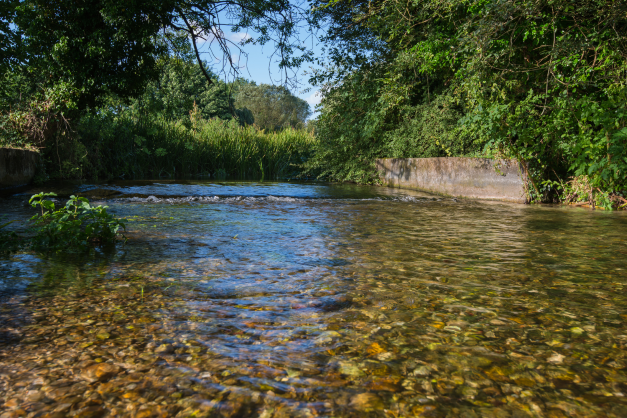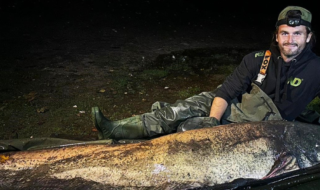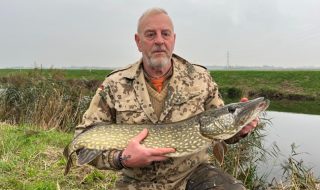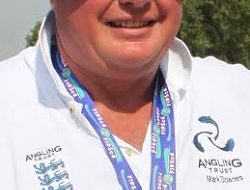The Angling Trust and Fish Legal are responding to the proposals in the current consultation on the reform of Bathing Water Regulations by DEFRA and the Welsh Government.
We need anglers and angling clubs to act now to stop a massive loophole in the proposed new Bathing Water Regulations which could see canoes, kayaks, rowing boats and even powered craft designated as ‘bathers’ and disturbing fish and fishing on small rivers where currently no navigation is allowed.
Read on to see how we are responding and what you and your club can do to help stop this. The public consultation ends on 23rd December so please get writing NOW!
Bathing Water Regulations Reform Consultation – Angling Trust & Fish Legal Response
The Angling Trust and Fish Legal welcome the opportunity to respond to the proposals in the current consultation on the reform of Bathing Water Regulations by DEFRA and the Welsh Government.
The exercise aims to:
Remove the automatic de-designation of bathing sites from the regulations to deliver realistic timescales for investment and improvement and increase value for money from better-targeted investments.
Include the feasibility of improving a bathing site’s water quality to at least ‘sufficient’ as a criterion for final designation.
Remove the fixed dates of the monitored bathing season from the regulations currently 15th May to 30th September.
Concerns and Unintended Consequences
Unfortunately, these seemingly benign proposals on bathing water contain several issues of concern to anglers and fisheries which could lead to conflict, legal challenge, further delays to clean water improvements, and inaction by water companies.
The Angling Trust and Fish Legal have written to ministers in London and Cardiff to draw their attention to these issues. Our concerns centre around proposed reforms that seek to designate nearly all other water users as ‘bathers’. The rationale given for this is that it will engage wider groups of water users in the process of monitoring water environments for pollution. This is nonsense as the angling community has been lobbying on this issue and taking polluters to court since 1948. There are currently upwards of 800 angling volunteers from over 250 clubs on 200 catchments regularly sampling the health of rivers as part of the Angling Trust’s Water Quality Monitoring Network. It is absurd to suggest that redefining anglers or boaters as ‘bathers’ would serve any real purpose.
The consultation lists the following groups and activities as potential candidates to include in a wider definition of ‘bathers’: Anglers, Kayaks, Canoes, Paddleboarders, Rowers, Small Boats Users. In the freshwater environment, problems arise from several unintended consequences of this proposed change that have clearly not been thought through in the drafting of this consultation (apparent by the fact that fishery owners and/or angling clubs who hold fishing rights are not expressly listed as those whose views would be specifically relevant).
Summary of Key Points
1. Environmental and Safety Impacts
Widening the definition of ‘bather’ to include rowing eights and small boats (powered craft are not excluded) will need to consider the negative impacts of opening such activities both on other water users and the environment.
By broadening the definition of ‘bathers’ to include activities such as rowing, canoeing and use by other small boats (possibly jet skis) the level of disturbance for fish and wildlife will be intensified and spread over a much larger section of river.
The process for designating bathing water sites cannot ignore the current law which protects fish spawning sites.
Increased use of canoes and other watercraft brought in from other river systems heightens the risk of the inadvertent transfer of invasive species.
There is also the prospect of endangering the swimmers and other water users through accidental collision, which in the case of powered craft could well be fatal.
Removing automatic de-designation or extending the time over which a bathing water site must reach at least “satisfactory” could give water companies reason to delay investment and action indefinitely without a defined timescale for improvement/compliance to bathing water standards.
2. Potential increases in offences under the Salmon and Freshwater Fisheries Act.
There has been no impact assessment as part of this consultation. This means that issues around access, riparian and fishing rights, navigation, or ecological impact have not been considered.
There are no obvious safeguards being considered that would protect known fish spawning sites with particular emphasis on threatened and endangered species such as Atlantic Salmon or other SAC species such as lamprey or shad.
There is a danger that in promoting year-round bathing members of the public will be at risk of prosecution under Section 2 (4) of the Salmon and Freshwater Fisheries Act.
Where damage is caused to designated features of a Site of Special Scientific Interest (“SSSI”) or Special Area of Conservation (“SAC”), then further offences may also have been committed.
3. Impact on the rights and enjoyment of anglers
There is no general right to navigate non-tidal rivers in England and Wales.
There is a proven route of negotiating voluntary access agreements to facilitate shared access to the water.
Governing bodies of canoeing frequently mis-state the law on navigation on rivers in England and Wales.
There are multiple examples over many years of deliberate acts of trespass across private land and along rivers and streams where no navigation rights exist.
Without proper pre-designation checks or evidence of the impact of designation on existing riparian rights the reforms could lead to further conflict on the bank.
Bathing water designation cannot become a mechanism to legitimise trespass or otherwise cause a nuisance within the defined areas of each bathing water, nearby or downstream.
We are aware of sites that have been designated despite objections from the landowner, local council, and the environmental regulator on environmental grounds.
Actions you can take
If you’re a concerned club representative or an individual angler, there are three key actions we would like you to do to support our efforts to highlight the issues above and urge the government to reconsider their proposals. Before 23rd December:
Email DEFRA with your thoughts and concerns at bathingwater@defra.gov.uk. Copy in your local MPs asking them to back our call, and copy in our campaign email BWC@anglingtrust.net so we can keep a track. You can find out who your local MP is and their contact details here and you can find some draft wording for your email below. Please use as much or as little of this copy as you wish, but please enhance it with your own information about your club, angling experiences, or local challenges with canoe trespass. The more of your own words you use to highlight your experiences and local angling situations the more powerful your submission will be.
Share your concerns on social media (or share the Angling Trust posts on Facebook and X).
It would be great if you could take the first two steps. If you have a spare 20 minutes to complete the official DEFRA consultation survey that would be a huge help. The Trust will be putting together our answers and detailed responses over the next week, and we will add them to this page and share them via an update for you to view and use in your own response if you wish.
The Angling Trust and Fish Legal will be making further representations to relevant Ministers, MPs, regulators, and supportive campaigning partners between now and 23rd December and will keep this page updated with developments.
If you have any questions, concerns, ideas, or feedback on our approach, please let us know at BWC@anglingtrust.net
Click here to download email copy for clubs and fisheries to send, including consultation response





